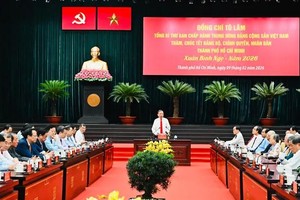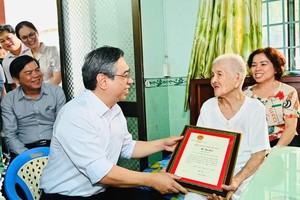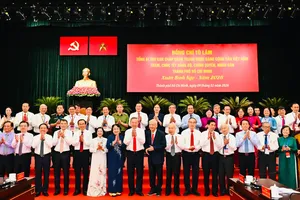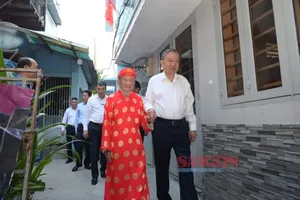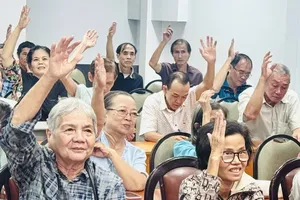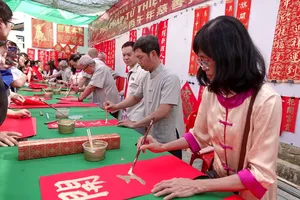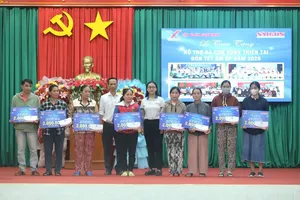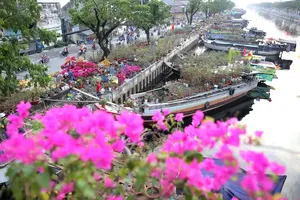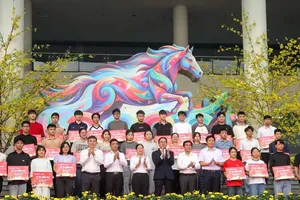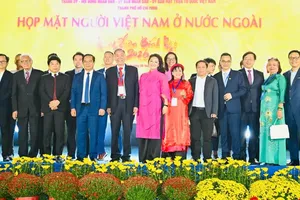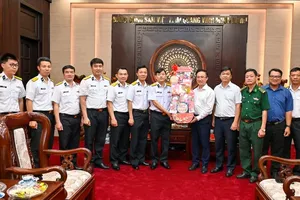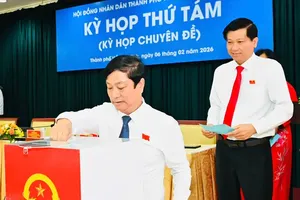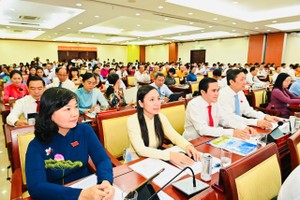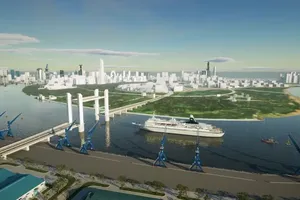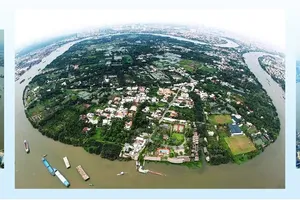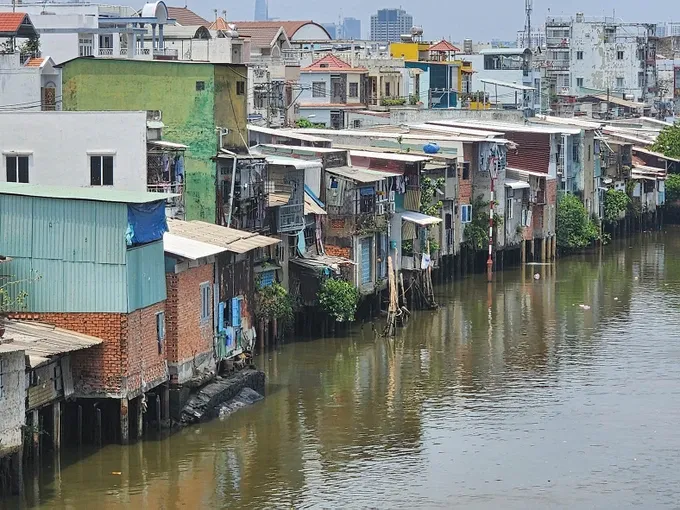
Along Pham The Hien Street in District 8 are shabby houses half on the land and half on the water surface of Doi Canal. Dwellers here have purposedly built their house like that to have more space for daily activities. They have to endure this crampy and unsanitary space due to their low income.
More seriously, most houses like this have no formal land use right (the red book), and thus find it hard to repair or rebuild these structures. Being too shabby means different hazards to house owners. For instance, on April 1, a fire suddenly broke out inside one house on this street and quickly spread to neighboring ones. All efforts to eliminate this fire were unsuccessful, and only 10 minutes later, a block of houses was completely destroyed.
For many years, the Party Committee and People’s Committee of HCMC have classified relocating households living along canals as a key task in socio-economic development of the city. Since 1993, this task has been carried out, first very quickly but then gradually more slowly owing to financial shortages when the money for this task is no longer taken from the city budget.
The task was one of seven breakthrough programs for the 2015-2020 term of the HCMC Party Committee, and this has been repeated in the next term from 2021-2025. Despite that fact, the relocation speed has not at all seen any improvements!
From 1993-2000, HCMC was able to move more than 38,000 out of 65,000 houses. The aim is to relocate another 20,000 houses by 2030, particularly 6,500 before 2025. Sadly, during the 2016-2020 period, only 2,500 houses were successfully moved, accounting for merely 12.4 percent.
Dr. Vo Kim Cuong, former Deputy Chief Architect of HCMC, commented that urban renovation and decoration programs in the city used to enjoy favorable conditions thanks to prosperous finance from public land resources. Relocated people were moved to resettlement areas built from the money gained from selling state-owned houses.
Another rich capital source was the Official Development Assistance (ODA) loans, which are normally non-refunded or with low interest rates. In addition, surplus land in the past was suitable for an exchange between land and infrastructure (Build-Transfer) contracts. This is no longer available.
Dr. Cuong proposed a mobilization of social resources citywide to improve the status of canals themselves in consistency with renovating their neighborhoods.
Deputy Head Bui Duc Long of the Urban Management Division of District 4 shared that his area is in charge of a large quantity of canals, and the local authorities are facing difficulties relocating households living along these canals owing to financial strains. He suggested more consideration into a mechanism for resettlement without calculating land use fee like the policy for social housing.
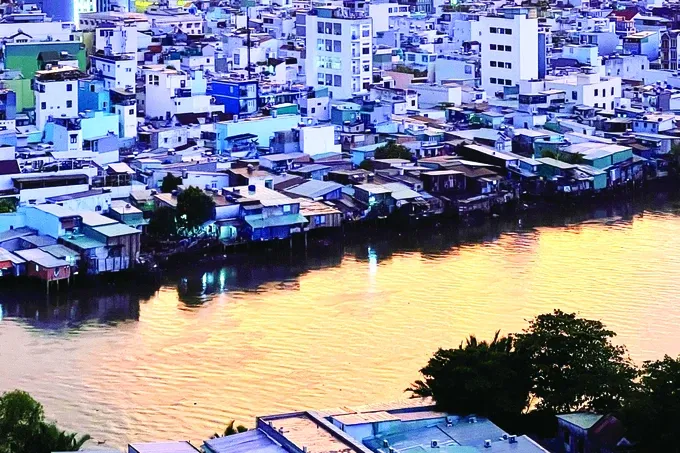
Statistics from the HCMC Construction Department reveal that by the end of 2023, HCMC had compensated and relocated 700 families out of 6,500 who were sited along canals. It is estimated that the figure will have risen to 4,250 by 2025, accounting for 65 percent of the target.
Mr. Long added that from 2020, according to the Investment Law for Public-Private Partnership (PPP), the model of Build-Transfer contract is no longer available. Investors can only do business on the land after clearance, which is not at all lucrative to them. Along with that are two major obstacles.
The first is necessary capital from the city budget. The task of relocating people living along canals is a key but not urgent one, so it is not of top priority. Secondly, compensation policies are still rather inadequate. Most houses that need to be eliminated have no formal land use right, and their current space was illegally developed in the past by encroaching, meaning a longer and more complicated administrative procedure to handle.
The Construction Department proposed that in the upcoming time, the HCMC People’s Committee should allocate suitable capital for state-financed projects, while the Department of Natural Resources and Environment should instruct the People’s Committees of all districts and Thu Duc City how to completely handle unsuccessful relocation cases due to complaints related to compensation rates or policies.
The Construction Department also recommended a pilot of allowing resettled people in these cases to buy social housing to stabilize their life. When approved by the HCMC People’s Committee, this proposal is a great chance for all localities to accelerate the resettlement task.
Dr. Nguyen Huu Nguyen from the HCMC Urban Planning and Development Association stressed financial shortage as the major obstacle in this relocation task. It seems that the available capital is only around 30 percent, with another 30 percent to be obtained, and the rest is nowhere to see. This has made the resettlement task slower than expected. Also, it is necessary to particularly ensure that the new place is the same as, if not better than, the old one for concerned people to move.
Vice Chairman Le Van Thanh of the People’s Committee of District 7 said that there are many difficulties in land clearance and compensation for households now living along canals of the district. Many families are not eligible to receive a house or can only obtain small-spaced accommodation despite their large size. Others cannot provide valid land use right documents. Moreover, most concerned people think that they should receive compensation according to market price even though they can display no formal land use right paper.
He suggested that HCMC should review the navigation capacity of some canals to expand the construction border of neighboring areas so that there is more land resource for building resettlement blocks or for developing local business activities to help poor households having to move out but not eligible for resettlement.

